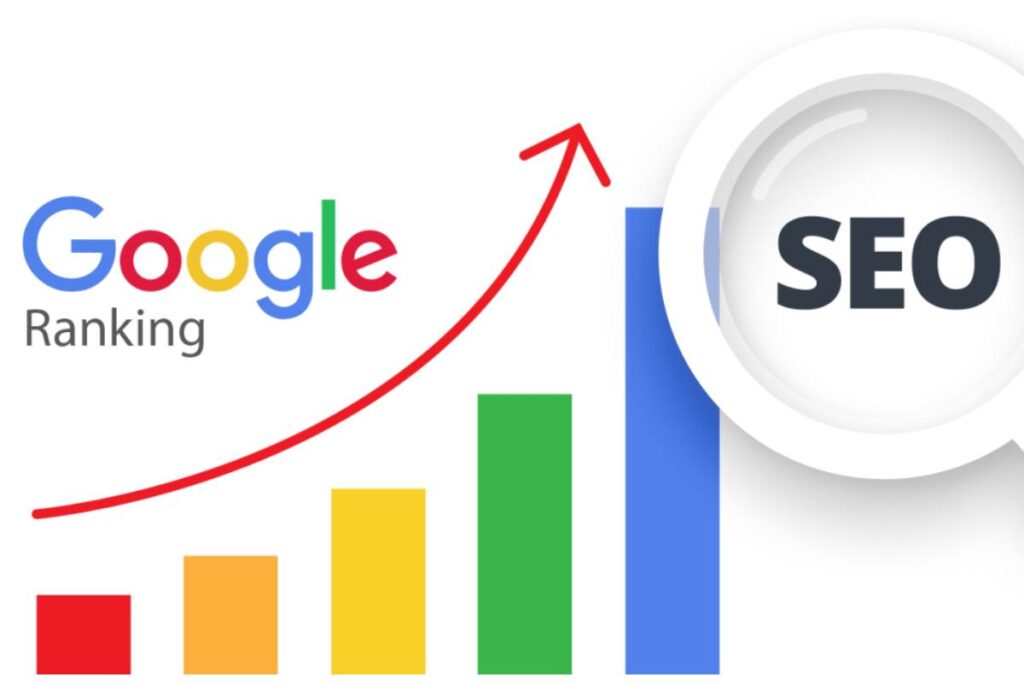A high-ranking website doesn’t happen by chance—it’s the result of strategic optimization and the power of SEO best practices. Search Engine Optimization (SEO) is essential for increasing your website’s visibility and driving organic traffic from search engines like Google. Whether you’re running a business or a blog, understanding how SEO works can significantly impact your success.

1 Understanding SEO and Its Importance
The Power of SEO involves optimizing your website’s content, structure, and backlinks to improve its search engine rankings. When done correctly, SEO helps your website appear higher in search results, making it easier for potential visitors to find you.
With billions of searches made on Google daily, ranking well ensures your content reaches the right audience. This translates into more traffic, better engagement, and higher conversion rates.
2 Keyword Research: The Foundation of SEO
Keywords are the terms and phrases users type into search engines. Effective keyword research allows you to identify the words your target audience uses. Tools like Google Keyword Planner, Ahrefs, and SEMrush can help you find relevant keywords with high search volume and low competition.
Best Practices for Keyword Optimization:
- Use primary keywords in the title, headings, and first 100 words of your content.
- Incorporate long-tail keywords for better targeting.
- Avoid keyword stuffing—focus on natural integration within your content.
3. Technical SEO: Improving Website Performance
Technical SEO ensures that your website is fast, mobile-friendly, and easy for search engines to crawl.
Essential Technical SEO Factors:
- Fast Loading Speed: Optimize images, enable caching, and use a content delivery network (CDN).
- Mobile-Friendliness: Ensure your website is responsive and adapts to different screen sizes.
- SSL Certificate: A secure website (HTTPS) boosts credibility and improves rankings.
- XML Sitemaps & Robots.txt: Help search engines index your site more effectively.
4 Off-Page SEO: Building Authority with Backlinks
Off-page SEO involves external factors that impact your website’s authority and credibility. The most crucial aspect is backlink building—getting other reputable websites to link to your content.
Effective Link-Building Strategies:
- Guest Blogging: Write high-quality content for reputable sites in your industry.
- Social Media Promotion: Share content on platforms like LinkedIn, Twitter, and Facebook.
- Influencer Outreach: Collaborate with industry leaders to earn valuable backlinks.
- Local SEO: Get listed in Google My Business and local directories for improved local search rankings.
5 Monitoring & Adapting: Tracking SEO Performance
SEO is an ongoing process that requires monitoring and adjustments. Use tools like Google Analytics, Google Search Console, and Ahrefs to track your website’s performance.
Key Metrics to Monitor:
- Organic Traffic: The number of visitors coming from search engines.
- Bounce Rate: The percentage of users leaving after viewing only one page.
- Keyword Rankings: Track how your target keywords perform in search results.
- Backlink Profile: Monitor the quality and quantity of links pointing to your site.
SEO is a powerful tool for improving your website’s visibility, attracting more visitors, and increasing conversions. By focusing on keyword research, on-page SEO, technical optimization, and backlink building, you can enhance your site’s ranking on Google.
Implement these strategies consistently, stay updated with the latest SEO trends, and watch your website climb the search results!


